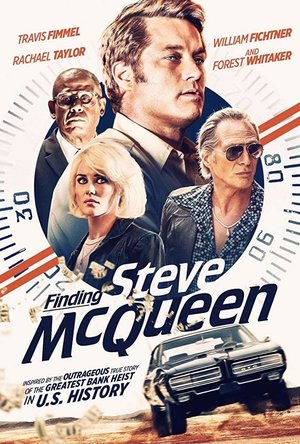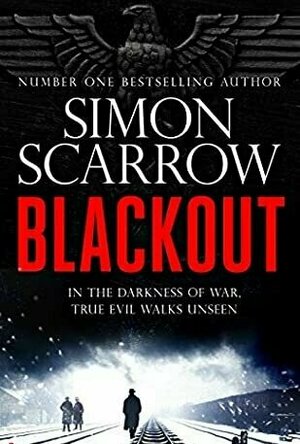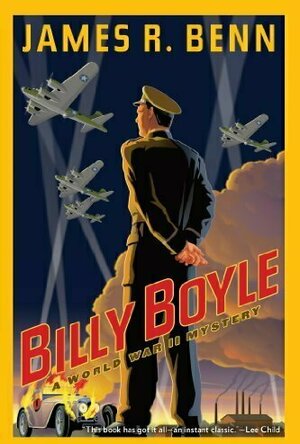
Billy Boyle
Book
What’s a twenty-two-year-old Irish American cop who’s never been out of Massachusetts before...
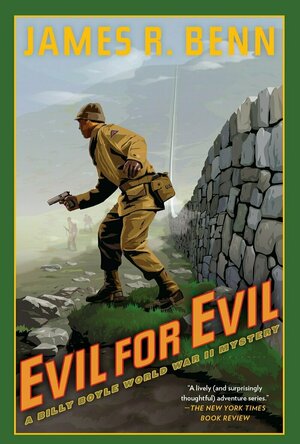
Evil for Evil
Book
Irish-American Army Lieutenant Detective Billy Boyle returns to his family's homeland only to get...

My Ripper Hunting Days
Book
After many years spent writing his novel in the United States, Canada and Mexico, Bernard Boley's...
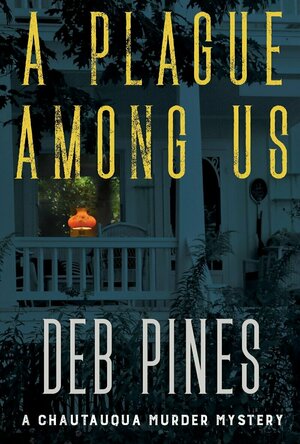
A Plague Among Us (Mimi Goldman Chautauqua Mysteries #8)
Book
When Al Martin, the editor of a satiric newspaper in Chautauqua, N.Y., reportedly dies of COVID-19,...
Mystery
Emma @ The Movies (1786 KP) rated Finding Steve McQueen (2019) in Movies
Nov 9, 2020
I had a big issue almost straight off the bat... "In 1972"... that's how the synopsis starts. I had reread it just before starting the film and as it begins it actually flashes up "1980", very quickly it's explained (and it makes sense) but I didn't enjoy starting the film with that confusion. Now, if I was seeing this in the cinema it wouldn't have been an issue because you don't tend to sit there in the trailers reading the synopsis before it starts, but with it hitting digital you will be instantly seeing it before you press play... I know it's a really minor thing to be bugged by... but it did bug me.
The reason for the jump in years is that we're seeing Harry Barber telling his girlfriend, Molly, the story of his past and the heist. Flashbacks are a time-honoured tradition in films, but they're difficult to get right. The story jumps several times, but there's very little differentiation between time unless the diner is involved on one side of the jump. At one point it jumps because he talks at the camera and we hop back to Molly talking, it stuck out... it either never happened again or it blended in so well that I didn't notice it. It wouldn't be the first film to add something random like that and abandon the style choice. Some else will have to let me know if it happened more than I think it did.
These two things, combined with some free moving camerawork (that you know I hate) meant that I found the beginning of Finding Steve McQueen, especially when the heist that is pushed in the marketing doesn't appear for quite a while.
IMDb lists crime thriller as a guide... thriller is definitely the wrong word. Heist comedy (as per the PR I saw) is definitely more accurate, though I didn't find it particularly funny. It did bring a mild laugh out of me, but not enough to stamp it with the comedy tag. Even "heist" feels like it doesn't fit well, it may be about one but what's presented is much heavier on other parts of the story. It's more like a biopic with romance than crime. In the end that's a little bit disappointing when you're looking forward to crime.
William Fichtner was an instant standout for me, I thought he handled the role of Enzo Rotella particularly well, and there was a great dynamic with Louis Lombardi as Pauly. Rachael Taylor as Molly Murphy was great too, when she wasn't freaking me out with how much she looked like Nicole Kidman. Somehow I've never noticed that before so I'll have to put it down to a cunning makeup artist.
From there though I was underwhelmed. I'm not familiar with Travis Fimmel, and sadly, from this performance I've not been convinced to check out anything in his back catalogue. Apart from two well-played emotional scenes I didn't enjoy the character of Harry Barber at all.
Had this been advertised as a biography instead of a crime/heist then I probably would have had a more favourable opinion, but we're presented with a slow and light film. I'm not expecting all crime films to be gritty and dark, but I do expect them to focus more on the actual crime and investigation. That's also where I found the flashback idea falling apart because we're shown things for context that Harry wouldn't have known and been able to tell Molly.
What I did love about this film was the setting and the look of everything. It had a wonderful freshness about it and that coupled with the costumes felt natural and like it captured the era perfectly.
I by no means hated this film, but I was extremely disappointed. The way the story was balanced means that the heist gets lost in everything else that's happening and although it's hailed as an amazing feat in American history it doesn't feel all that impressive in this portrayal. The only real criminal thing about this film was the underuse of Forest Whitaker.
As a biography I could have seen clear to give this a 3, maybe a 3.5, but as a crime I can't give it more than a 2. It feels entirely misrepresented, had it not been for the few excellent performances, and the hope of exciting crime drama, I think I would have turned it off.
Originally posted on: https://emmaatthemovies.blogspot.com/2020/11/finding-steve-mcqueen-movie-review.html
Gareth von Kallenbach (980 KP) rated Nightcrawler (2014) in Movies
Aug 6, 2019
“Nightcrawler” centers around Louis Bloom (Jake Gyllenhaal), a young man who is attempting to do just that – create something out of nothing and ascend to great heights of success.
Truly a schmuck by every definition of the word, Louis is a contemptible character. He lies, steals, and bends every rule in pursuit of the almighty dollar. This makes for a character that people will love to hate.
Louis discovers a grand opportunity to make money by essentially playing paparazzi to the world of crime. A skill in high demand in a news industry which sensationalizes violence and crime in order to gain ratings.
The film portrays the workings of the news media as somewhat twisted. The industry plays off of the naivety of the American public.
This theme builds throughout the movie, becoming more and more apparent. It hints at an uncertainty of the ethics of crime news coverage. This message is perhaps intended to extend beyond the silver screen and into the real world.
A thriller with depth, “Nightcrawler” is one hell of a debut for director Dan Gilroy. In addition to the unique and complex plot line, the cast is expertly selected.
Each character achieves a raw realness that turns the audience into witnesses rather than movie goers.
Gyllenhaal, who lost 20 pounds for the role, has mastered the art of portraying madness. His eyes communicate a certain detached sadness, yet at the same time he appears egotistical. His expression exudes an inner dialogue which is fleeting and somewhat absent from reality. He is the main character in the movie, as well as in his own mind.
The evolution which his character, Louis, exhibits is electrifying. He is a man in constant motion – doing whatever it takes to succeed, and sinking deeper into the dark side of a news media that lives off of ratings.
The film starts to resemble a gory train wreck which one cannot resist but to stare at as it follows Louis. In order to get the perfect shot, he pushes the line of morality further and further. His morally questionable character begins to blur into the realm of psychotic.
Human lives begin to be something of a commodity when on the other side of a lens. Nina (Rene Russo), a news director desperate to stay in demand is determined to stay focused on theme of urban crime creeping into suburban neighborhoods. She knows this is what grabs attention, and despite reality, she intends to deliver a particular story to viewers.
Russo’s tired eyes add to the realness of the dramatic story. She is just one of the characters which may confuse the audience in regards to who is “good” and who is “bad.” The interplay between characters who cannot be defined as good or bad creates a massively entertaining drama.
The deeper message of the film is left up for interpretation. Perhaps many people are just “not so good,” then there’s Louis who most people won’t be able to help but loath.
A true statement piece, “Nightcrawler” delivers a nauseating cinematic rush.
I give “Nightcrawler” 5 out of 5 stars.
I also tend to find 'book club picks' to be rather off-putting; generally finding those I have previously read to be rather tedious and just not generally all that interesting (while able to admire the literary sophistication of the works).
This is both a crime fiction novel, and a 'Richard and Judy book club pick', so that would - normally - have been 2 marks against picking it up, in my books.
However, I have read - and generally quite enjoyed - most, if not all, of Simon Scarrow's other works - in particular his Cato and Macro series - so, when I saw this on a Kindle deal for something like 99p, I thought to myself 'why not?'.
And, I have to admit, I did actually quite enjoy this.
Set in 1939 Berlin just at the start of WW2, I found this to be unusual in that it told the story from the Point of View of a German criminal inspector - most WW2 novels (that I am aware of) usually feature either American or Brits as their main protagonists - who is not a member of the Nazi party: a fact that, here, is usually held against him but is also the reason he got handed the assignment as he has no links to any factions within the party.
It's both a very different time and 'headspace' than modern sensibilities; interesting to see how the man-on-the-street could have viewed the headline events of the time. As someone from Northern Ireland, there's also aspects of the novel that hit frighteningly close to home for me ...
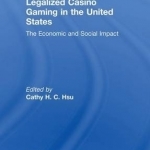
Legalized Casino Gaming in the United States: The Economic and Social Impact
Book
Covering the entire United States gaming market, Legalized Casino Gaming in the United States...
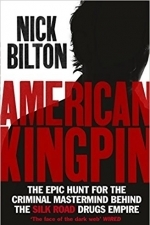
American Kingpin: Catching the Billion-Dollar Baron of the Dark Web
Book
A NEW YORK TIMES BESTSELLER The unbelievable true story of the man who built a billion-dollar...
crime biography
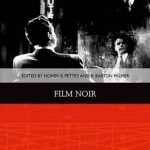
Film Noir
Homer Pettey and R. Barton Palmer
Book
This book explores the development of film noir as a cultural and artistic phenomenon. This book...
